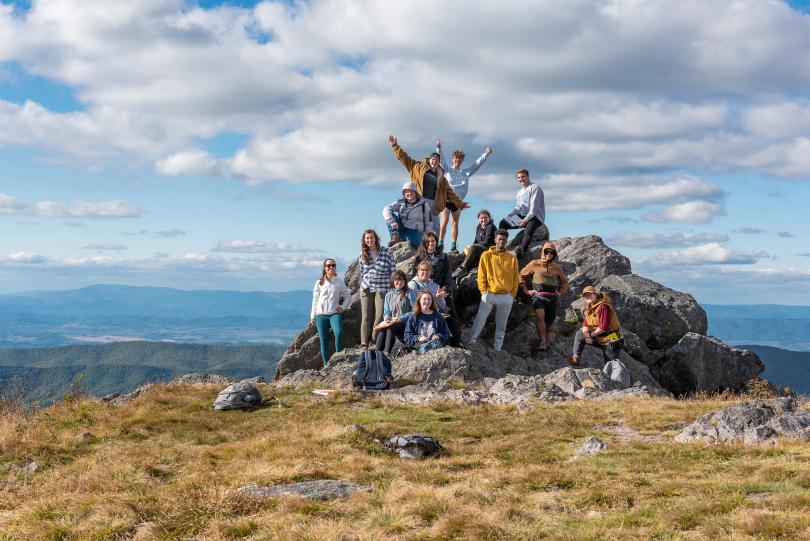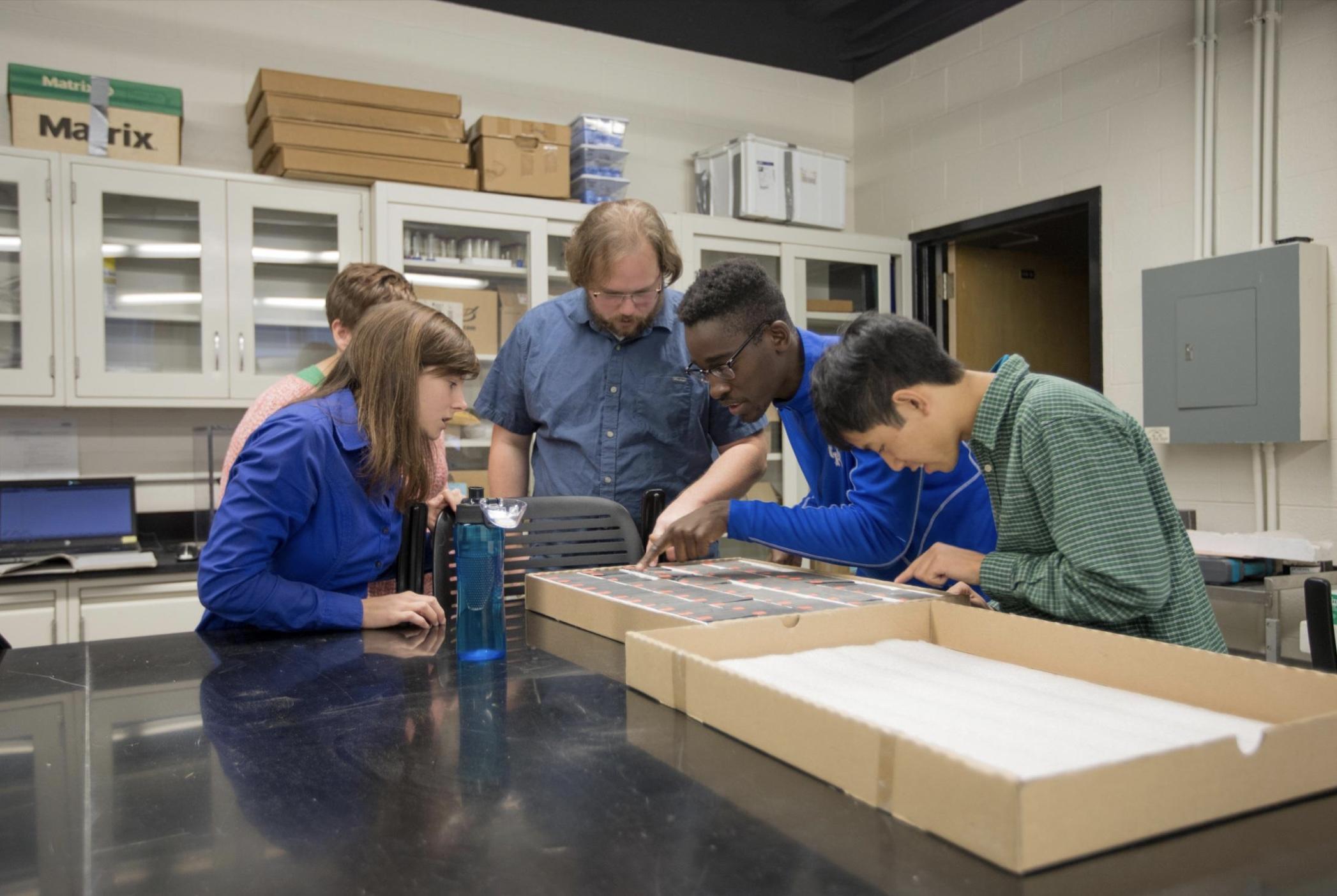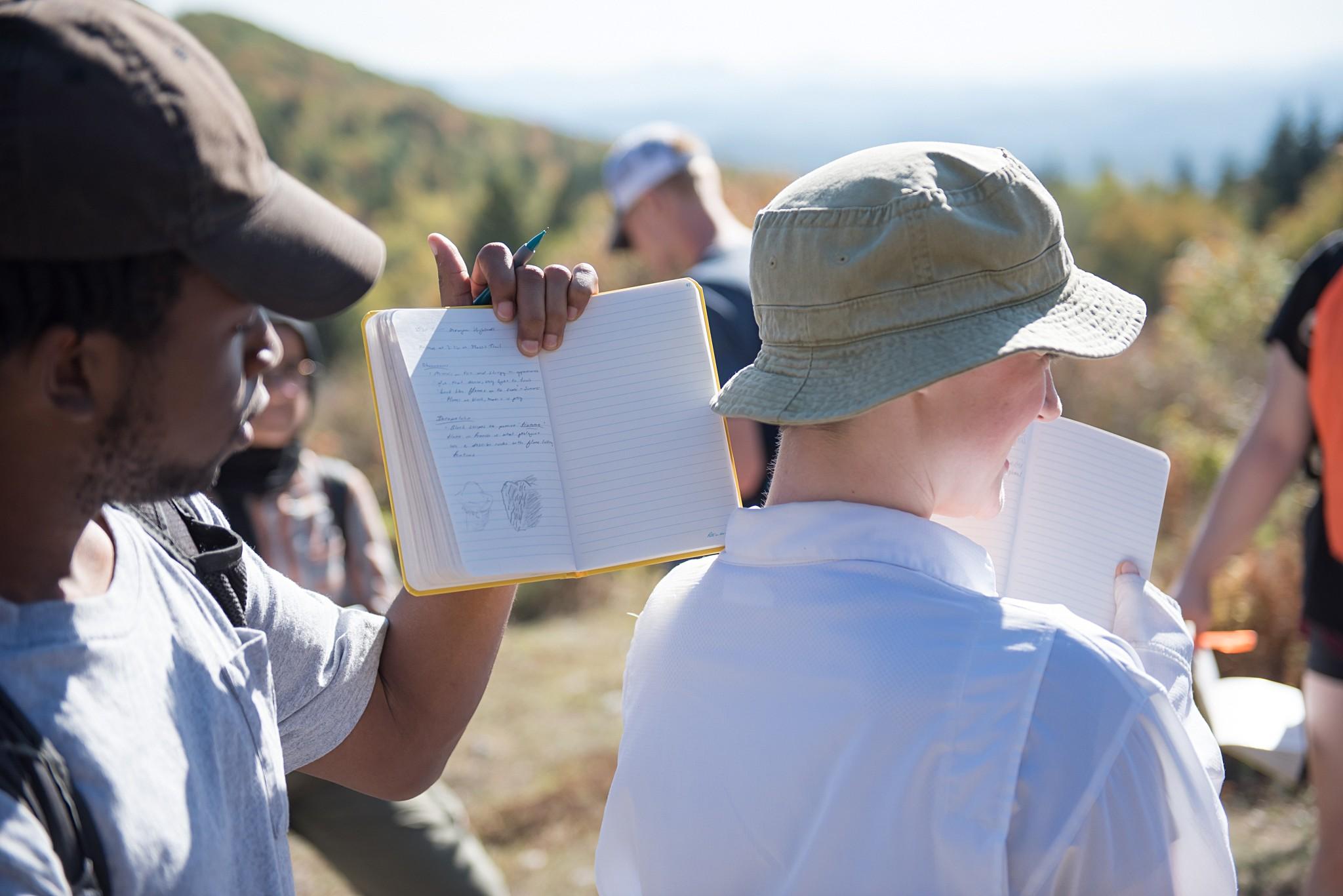Is Earth and Environmental Sciences the right choice for you?
Do you...

Want to feel like part of a community?
Care about the planet?
Want to travel?
Like the idea of working in a lab?
Want a good job straight out of college?
Like spending time outdoors?
Want to help people?
Want to go to grad school for free (and also get paid to do so!)?
If you answered YES to three of more of these, then keep reading through these Frequently Asked Questions!
Will I get to travel with this degree?
Yes! Our undergraduates have recently traveled to California, Canada, Louisiana, Wyoming, Utah, The Bahamas, Scotland, Italy, and many other amazing places while completing coursework and undergraduate research at UK. While not required, we also offer courses that provide fantastic field experiences outside of Kentucky and generous alumni who make this financially possible. You can learn more about EES field experiences at this page.
What if I already have a major?
Did you know most EES majors didn't actually start that way? Watch this video (embedded below) and hear about how some of our students and faculty ended up in the geosciences!
What if I'm not sure I'm a good fit?
There are some pretty big misconceptions about being a geoscientist or geologist! Let's go ahead and get those out of the way now:
1. IT'S ALL ABOUT ROCKS
While many geoscientists may use rocks, sediment, or soil to get clues about our planet's past and future (like for studying climate change) there are just as many areas of interest that don't involve rocks at all!
2. ALWAYS IN THE FIELD
Some geoscientists get into the science because of their love of the outdoors and travel, but this definitely isn't a requirement. Quite a number of branches of earth science are lab and computer-based.
3. THEY ARE GREAT AT MATH
The Earth and Environmental Sciences Department offers two options: a B.S. or a B.A. in Earth and Environmental Sciences. Students receiving a B.A. take fewer math courses and focus on other strengths instead.
4. IT'S ALL "OLD WHITE GUYS"
Women receive nearly half of the geoscience degrees in the modern era. Regardless of your gender, we think you'll find a home in EES!
5. THEY HAVE TO BE INTO OIL AND GAS
Although some of the graduates from EES have gone on to work in resource extraction, these days more go on to work in environmental positions. If you want to save the planet, the geosciences are a great start!
6. THEY USE OUTDATED METHODS
While the fundamentals are important, after the first year you may end up in classes learning modern technologies like ArcGIS, using portable XRF spectrometers, or even collecting data via drone!

What do our majors actually do with their degree?
Geoscientists and environmental scientists will be absolutely critical for meeting the demands of our society in the future through alternative energies and helping provide equitable access to basic needs like clean water and food. Click here to see all of the ways our majors will be an important part of a sustainable planet.
As of 2024, the median salary from the US Bureau for Labor Statistics for a geoscientist is $99,245 and the median salary for an environmental scientist is $80,060. The highest paid geoscientists work in resources like in energy or finding minerals used to build things like cell phones, appliances, and solar panels. However, even if you don't work in those industries, you can still do very well as a geoscientist or environmental scientist AND work in a subdiscipline you are passionate about. Below are some of the careers EES majors may pursue with their degrees.
- environmental geoscientist
- economic geologist
- geomorphologist
- petroleum geoscientist
- hydrogeologist
- engineering geologist
- paleoclimatologist
- volcanologist
- forensic or medical geologist
- seismologist
- geophysicist
- geochemist
- glaciologist
- mineralogist
- sedimentologist
- cartographer
- paleontologist
- petrologist
- stratigrapher
- planetary geoscientist
- land-use technician
- surveyor
- government
- museum curator or gemologist
What do the students say?
We'll let these quotes speak for themselves!

I believe establishing close bonds with your classmates is a VERY important part of succeeding. Field trips solidified my love for this major and made me feel as if I truly belonged with this department and the people that are part of it.
- Bailee Morrison
One of the best parts of the geosciences is that there are so many options within the science. It's not just for the rugged outdoorsy person. I've never been one to jump at the chance of adventure - I instead shoot minerals with an electron gun for my research from the comforts of a lab!
- Nick Powell
When I tell people what I'm majoring in they are always curious about it. However, when my friends and family see photos I post from school online, they all think it's the coolest thing!
- Amber Dunn
I'm a little worried about finances, does EES offer scholarships?
Absolutely! Scholarships are available and paid lab positions in EES or internships with KGS are an option for our students. If you want to be here, we want you to be here and can help you figure out how to make that happen. We have a number of scholarships available within the department, which you can find here. Most students also end up working in one of the many EES research labs, gaining experience AND a paycheck. Additionally, below your can find a list of undergraduate and funding resources outside of the department.
- UK Admission
- Financial Aid
- UK Academic Scholarships
- A&S Scholarships
- External Scholarships
- Air Force ROTC Express Scholarship
- Family Educational Rights and Privacy Act (FERPA)
- UK Bulletin
- Education Abroad (information about Education Abroad Scholarships and A&S Travel Grants)
What's the next step?
Learn more about our Bachelor of Science Degree, Bachelor of Arts Degree, or Minor. Have more questions? Click here to reach out to Summer Brown, our Director of Undergraduate Studies.
